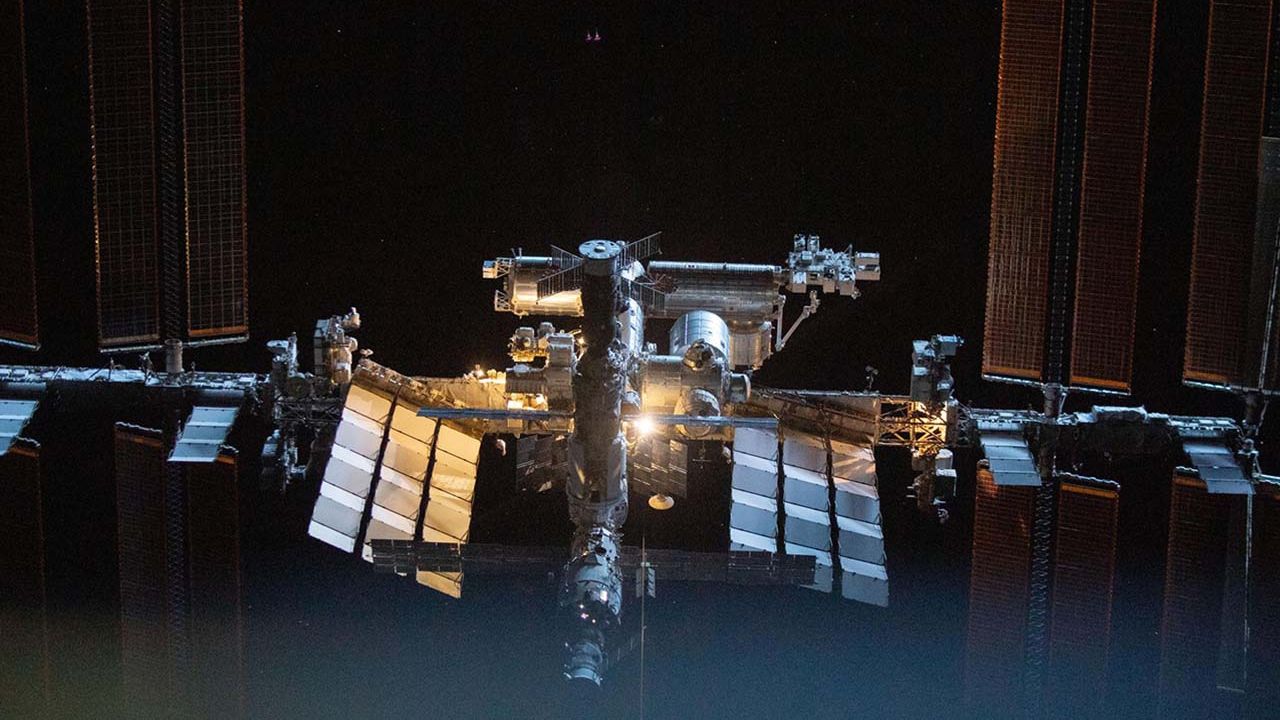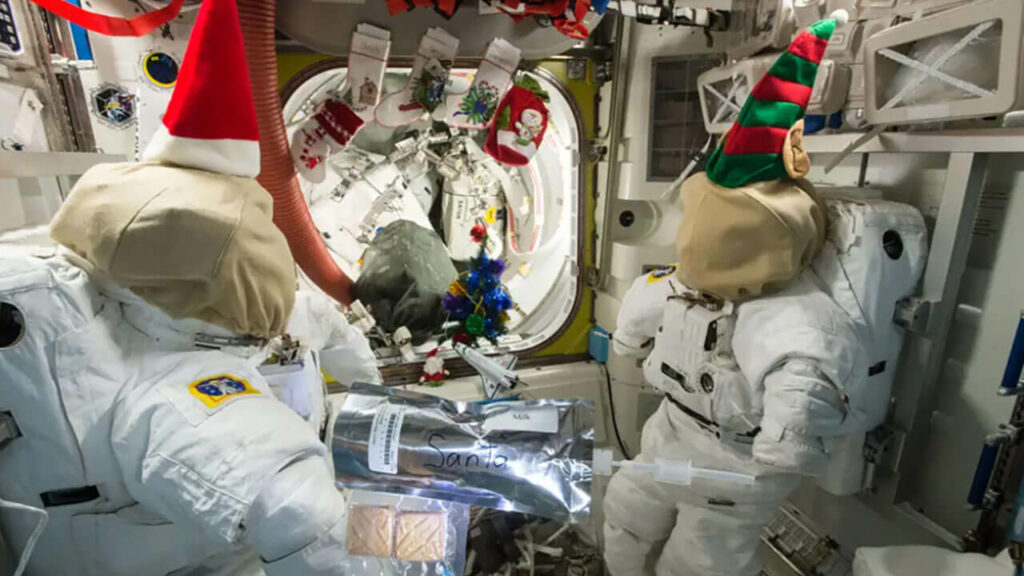International Space Station Marks 25 Years of Continuous Human Presence: A Legacy of Global Collaboration and Innovation

Global collaboration and innovation: 25 years of continuous human presence in low Earth orbit.
Since 2011, CASIS® has managed the ISS National Laboratory®, enabling access and opportunity for researchers to leverage this incredible research platform
November 4, 2025
KENNEDY SPACE CENTER (FL), November 3, 2025 – This past weekend, the International Space Station (ISSInternational Space Station) celebrated a historic milestone: 25 years of continuous human presence in orbit. Since November 2, 2000, more than 290 astronauts from around the globe have lived and worked onboard the space station, advancing science and fostering international cooperation for the benefit of humanity. During that time, the space station has served as a beacon of discovery and a proving ground for technologies that improve life on Earth and expand our capabilities in space.
Congress designated the orbiting outpost as a national laboratory in 2005, recognizing the unique potential of leveraging the space environment to return value to the American taxpayers. In 2011, through a competitive process, NASANational Aeronautics and Space Administration selected the Center for the Advancement of Science in Space® (CASIS®) to manage the ISS National Lab. For nearly 15 years, this novel collaboration has succeeded in generating demand for space-based research among non-government entities and has yielded valuable results.
The ISS National Lab—responsible for up to 50% of the flight allocation on NASA-funded commercial resupply services missions and of astronaut U.S. Operating Crew time dedicated to supporting R&D—has played a pivotal role in driving scientific advancements in low Earth orbit(Abbreviation: LEO) The orbit around the Earth that extends up to an altitude of 2,000 km (1,200 miles) from Earth’s surface. The International Space Station’s orbit is in LEO, at an altitude of approximately 250 miles. (LEO).
Since 2011, the ISS National Lab has sponsored more than 900 payloads across a variety of disciplines, attracted more than $80 million in funding from non-NASA entities to support research projects, and engaged millions of students to prepare the future workforce. These efforts have led to groundbreaking discoveries, innovative partnerships, and the validation of transformative technologies that impact life on Earth and shape the future of space research. As we honor this extraordinary achievement, the ISS National Lab proudly reflects on its role in enabling space-based R&D.
- Diverse research – The more than 900 payloads launched to the space station through the ISS National Lab representing thousands of investigations in life and physical sciences, technology development, in-space production, and STEM education.
- Private-sector utilization – CASIS(Abbreviation: CASIS™) The nonprofit organization that manages the ISS National Lab, which receives at least 50 percent of the U.S. research allocation on the International Space Station to facilitate research that benefits humanity (NASA manages the other 50% and focuses on research for space exploration purposes). has succeeded in building private-sector demand for the orbiting outpost. Nearly 60% of all ISS National Lab-sponsored projects are from commercial entities. Private-sector research partners include Fortune 500 companies, highly recognizable brands, and innovative startups.
- Driving investment – Startup companies that have leveraged the ISS National Lab have cumulatively raised nearly $2.5 billion in funding postflight, demonstrating the value of space-based R&D in accelerating commercialization.
- Enabling access – The ISS National Lab has engaged in multiple startup accelerator programs to support visionary early-stage companies. This year, the ISS National Lab launched its own Orbital Edge Accelerator program, wherein six companies were awarded up to $500,000 each and an opportunity to launch a project to the ISS.
- Results-driven R&D – More than 500 peer-reviewed articles related to ISS National Lab-sponsored research have been published, advancing scientific knowledge and laying the foundation for valuable applications.
- Partnering on fundamental science – The ISS National Lab has partnered with the U.S. National Science Foundation (NSF) and the National Institutes of Health (NIH) for many years to advance research in tissue engineering and the physical sciences. Combined, NSF and NIH have funded more than 85 projects leveraging the ISS National Lab.
- 21st Century lab in space – Since 2011, the number of commercially owned and operated ISS facilities has grown from two to more than 25. These facilities provide a wealth of capabilities for R&D, both in and outside station. By supporting Commercial Service Providers in validating new facilities and advancing their business models, the ISS National Lab is bolstering the LEO economy.
- Demand outpaces supply – More than 100 ISS National Lab-sponsored projects that have been selected are awaiting a future flight to the orbiting laboratory, demonstrating the continued strong demand for leveraging the space station.
“Twenty-five years of continuous human presence on the International Space Station is a monumental achievement not only for the space community but for all of humanity, as we see what’s possible when we collectively work toward a common goal,” said Ray Lugo, chief executive officer of CASIS. “The ISS National Lab is proud to partner with NASA to further the enduring legacy of the space station, and we look forward to continuing to enable space-based research and development to benefit humanity.”
To learn more about the space station and key events and activities that have shaped the ISS National Lab, visit our historical page.
Download a high-resolution image for this release: Space Station in 2021
# # #
About the International Space Station (ISS) National Laboratory:
The International Space Station (ISS) is a one-of-a-kind laboratory that enables research and technology development not possible on Earth. As a public service enterprise, the ISS National Laboratory® allows researchers to leverage this multiuser facility to improve quality of life on Earth, mature space-based business models, advance science literacy in the future workforce, and expand a sustainable and scalable market in low Earth orbit. Through this orbiting national laboratory, research resources on the ISS are available to support non-NASA science, technology, and education initiatives from U.S. government agencies, academic institutions, and the private sector. The Center for the Advancement of Science in Space® (CASIS®) manages the ISS National Lab, under Cooperative AgreementA cooperative agreement is Federal assistance that establishes a relationship between the U.S. Government and a recipient in which the principal purpose of the relationship is to accomplish a public purpose of support or stimulation. Since 2011, the Center for the Advancement of Science in Space™ (CASIS™) has managed the National Laboratory® through a Cooperative Agreement with NASA. with NASA, facilitating access to its permanent microgravityThe condition of perceived weightlessness created when an object is in free fall, for example when an object is in orbital motion. Microgravity alters many observable phenomena within the physical and life sciences, allowing scientists to study things in ways not possible on Earth. The International Space Station provides access to a persistent microgravity environment. research environment, a powerful vantage point in low Earth orbit, and the extreme and varied conditions of space. To learn more about the ISS National Lab, visit our website.
As a 501(c)(3) nonprofit organization, CASIS accepts corporate and individual donations to help advance science in space for the benefit of humanity. For more information, visit our donations page.

